Wellness Wednesday: The Ultimate Guide to Protein Sources
Let's state the obvious: protein is essential for you. Whether you're looking to build muscle, lose fat, stay full, or maintain your health, protein plays a crucial role. However, figuring out where to get your protein can be overwhelming. From meat to vegetarian sources, powders to dairy, there's a wide variety of options. Here's how to make your protein choices a bit easier to navigate.
Understanding Complete and Incomplete Proteins
Proteins are made up of smaller molecules called amino acids. There are twenty-two amino acids, nine of which are essential and must be obtained through food. These essential amino acids are:
Tryptophan
Lysine
Methionine
Phenylalanine
Threonine
Valine
Leucine
Histidine
Isoleucine
A complete protein contains adequate amounts of all nine essential amino acids. In contrast, an incomplete protein lacks one or more of these essential amino acids. Complete proteins are typically found in animal products, while many plant-based proteins are incomplete. However, by combining different plant-based proteins, you can still get all the essential amino acids your body needs.
Traditional Sources of Protein
Lean Proteins
Lean meats are high in protein and low in fat. They are a great option for those looking to increase their protein intake without adding extra calories from fat. Here are some top sources:
Warm-water fish (e.g., tilapia, cod)
White poultry meat (e.g., chicken breast, turkey)
Egg whites
Lean cuts of red meat (e.g., tenderloin, sirloin)
These lean meats typically provide about 20 to 25 grams of protein per 100 calories.
Protein-Rich Dairy
Dairy products can also be excellent sources of protein, although they vary in fat content. Opt for:
Greek yogurt
Cottage cheese
Low-fat milk
Cheese (in moderation)
Plant-Based Protein Sources
Plant-based proteins are an excellent option for vegetarians and vegans or anyone looking to diversify their protein sources.
Complete Plant-Based Proteins
Quinoa: A grain that provides all nine essential amino acids.
Soy products: Tofu, tempeh, and edamame are all complete proteins.
Chia seeds: A versatile source of complete protein that can be added to smoothies, salads, and baked goods.
Incomplete Plant-Based Proteins
While many plant-based proteins are incomplete on their own, combining them can provide all essential amino acids. Some excellent sources include:
Beans and legumes: Black beans, lentils, chickpeas.
Nuts and seeds: Almonds, pumpkin seeds, sunflower seeds.
Vegetables: Broccoli, spinach, Brussels sprouts.
Protein Supplements
Protein powders can be a convenient way to boost your protein intake, especially if you struggle to get enough from food alone. Here are some options:
Whey protein: A complete protein derived from milk, popular for its high biological value.
Pea protein: A good plant-based option, often combined with rice protein to provide a complete amino acid profile.
Soy protein: Another complete plant-based protein.
Remember, the importance of a protein supplement is primarily for those who don’t consume enough protein through their diet. Choose supplements based on your dietary needs, preferences, and budget, rather than marketing hype.
How to Incorporate More Protein into Your Diet
Here are some practical tips to help you add more protein to your daily meals:
Start Your Day with Protein: Opt for eggs, Greek yogurt, or a protein smoothie for breakfast.
Snack Smart: Keep nuts, seeds, or protein bars handy for a quick protein boost.
Choose Lean Meats: Include chicken, turkey, and fish in your meals.
Plant-Based Proteins: Add beans, lentils, quinoa, and tofu to your diet for plant-based protein options.
Dairy Options: Enjoy cheese, milk, and yogurt for additional protein.

